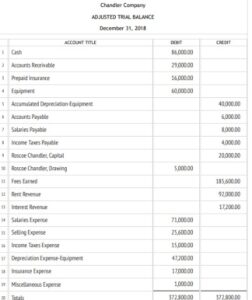
This factor depends on the rate of return as well the maturity period on other investments. Such investment amount can be redeemed by the investor only after 5 years. This shift in the period has increased the revenue from interest on these capital bonds in 2019. BondsIndia is a brand name of Launchpad Fintech Private Limited, an e-business platform for Fixed Income securities that uses technology as a means to provide quality & real-time financial solutions to users.
C Bonds Capital Gain Bonds Features and Benefits with Examples
- Just upload your form 16, claim your deductions and get your acknowledgment number online.
- These bonds have the highest AAA rating from agencies such Care, ICRA and Crisil which means highest creditworthiness and lowest default risk.
- Our Super App is apowerhouse of cutting-edge tools such as basket orders, GTT orders,SmartAPI, advanced charts and others that help you navigate capitalmarkets like a pro.
- Are you looking to sell your property but are worried about paying tax for gains?
- 54EC are capital gain bonds, that is used to receive the capital gain tax exemption.
Selling your capital assets for a generous amount of profit is surely a moment of joy, but it also comes with capital gains taxes. However, there are various ways to avoid this tax or minimize your capital gains tax liability. One such way is to invest your capital gains in capital gains bonds specified under section 54EC of the Income Tax Act.
Trusted by over 2 Cr+ clients, Angel One is one of India’s leadingretail full-service broking houses. We offer a wide range of innovativeservices, including online trading and investing, advisory, margin tradingfacility, algorithmic trading, smart orders, etc. Our Super App is apowerhouse of cutting-edge tools such as basket orders, GTT orders,SmartAPI, advanced charts and others that help you navigate capitalmarkets like a pro. You can apply through your broker if you are interested in investing in 54EC bonds. If you want to purchase, you must do it within 6 months of transferring the asset. The minimum amount to invest is Rs 10,000 and maximum Rs 50 lakhs.
We all have Rs.150,000 covered under section 80C in the form of PF or FDs or like. And an additional deduction allowed up to a limit of Rs.50,000 on creative accounting under section 80D. An example would better explain the difference between 54EC bonds and other investment options and whether it is profitable for an investor to gain more from other investments even if they need to incur taxes on those.
OPEN YOUR DEMAT ACCOUNT AND START TRADING SEAMLESSLY
REC (Rural Electrification Corporation), IRFC (Indian Railway Finance Corporation) & PFC (Power Finance Corporation Ltd) are the bonds eligible under Section 54 EC. You can apply for the 54 EC bonds offline (Physical) and online. Stock Brokers can accept securities as margin from clients only by way of pledge in the depository system w.e.f. September 1, 2020. These bonds are highly secure, sovereign in nature with a AAA rating. Insurance is not a Exchange traded product and the Member is just acting as distributor.

Maximizing Returns: A Comprehensive Guide to 54EC Bonds for Smart Investors
Do note that there is a cap on the capital gain that can be reinvested in a 54EC Bond, and the limit has a ceiling of Rs.50 lakh. Yes, NRIs can claim the exemption the exemption under section 54EC of the Income Tax Act. However, the land or building that has been sold to result in a capital gain should be located in India. Want to know about more tax-saving investment options or don’t know how to plan your taxes?
All disputes related to the distribution activity of insurance will not have access to Exchange investor redressal forum or Arbitration mechanism. The securities are quoted as an example and not as a recommendation.
So, investment in bonds approved under Section 54EC do the same trick better. Section 54EC of the Income tax Act notifies certain bonds in which the capital gains can be invested to claim LTCG tax exemption. These bonds offer interest rate, which is 5.25 per cent from April 1, 2023 which is 25 basis points higher than FY23. 54EC bonds allow Indian investors to save taxes on long-term capital gains by investing in government-backed entities like PFC, IRFC, and REC. These bonds have a lock-in period of 5 years with interest rates around 5-6% per annum. Investors can compare them with FDs, PPF, and Debt Mutual Funds for returns.
There are different kinds of bonds available in the market for an individual to choose from. These bonds are dominantly from the government bodies such as bookkeeping 2021 Government bonds, Municipal bonds, capital gains bonds, etc. Funds collected from these bonds are mostly used by Government organisations to invest in infrastructure and real estate. The taxpayer must invest the capital gains or the net consideration, whichever is lower, in Section 54EC bonds within six months from the original asset’s sale date.
54EC are depreciation journal entry capital gain bonds, that is used to receive the capital gain tax exemption. If you have received capital gain from selling a property, you can invest in these bonds to avoid paying capital gain tax. The tax rate of capital gains arising from the sale of long-term capital assets is 20% if the individual fails to invest such capital gains in specified capital gains bonds.

